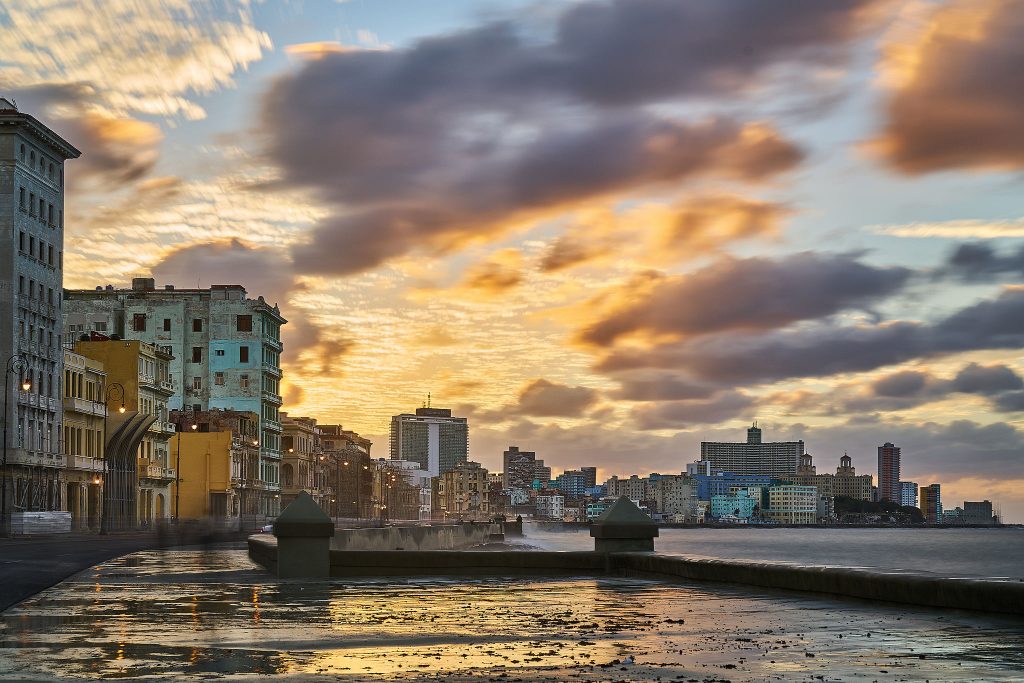Updates to the travel policy between the United States and Cuba
Relations between the United States and Cuba began to warm in recent years much like the waters of the Florida Straights between them.

During this time, many cold-war era (and older) embargoes and sanctions have been revisited by the United States. One of the most important and impactful changes included the loosening the restrictions on travel between the two nations, including commercial charter flights and private jet charters into Havana.
Our team attended a meeting at (FXE) Fort Lauderdale Execuive with members from the Miami branch of the Office of Foreign Assets Control (OFAC), and the United States Customs & Border Protection Office in 2016 to learn more about the new categories and understand how they apply to luxury and business jet clients.
As new policies were created, 12 categories allowed Americans to arrange private and charter flights to Cuba, and new doors opened in ways which citizens could interact, from visiting relatives and educational, journalistic and religious activities, to individual “people-to-people” trips, the most broad category, allowing travelers to interact and engage with the Cuban people.
On Wednesday, November 8th, 2017, the Trump administration announced revisions on travel and commercial ties to Cuba, rolling back the previous historic opening with Havana.
The changes in travel policy for American citizens visiting Cuba come after President Trump announced nearly five months ago his plan to reverse Obama-era policies that eased up the decades-old trade embargo against the island, a promise made while on the campaign trail during his 2016 Presidential campaign.
These changes will go into immediate effect tomorrow, Thursday, November 9th, 2017, and are likely to prohibit some Americans from flying to Cuba, while also preventing on-going business deals between then U.S. and the Cuban government and military.
Individual “people-to-people” trips — the category allowing travelers to visit for educational purposes individually as opposed to in tour groups — has been eliminated. Such trips will no longer be approved unless travelers booked their flight or hotel before Trump’s original announcement on June 16th, 2017. Tourism to the island is still strictly prohibited.
However, there are policies that will remain intact and allow private and charter flights to/from Cuba
Educational group trips must now be arranged through a licensed group “subject to U.S. jurisdiction,” and a representative from the organization must be accompany flyers, and is also subject to U.S. jurisdiction.
Support for the Cuban People is still a permissible travel category, which includes humanitarian aid and human rights activities/assistance.
Visitors can stay in private bed-and-breakfasts (Airbnb) if they are traveling under this category. Since the loosening of travel restrictions, Cuba has become Airbnb’s fasting growing market, where total rooms available now top more than 22,000 listed on the site; nearly 35 percent of guests staying in the rooms traveler from America.
New rules for supporting the Cuban people also include renting rooms at a private residence (casa particular), dining at privately-owned restaurants (paladares), and shopping at privately-owned stores operated by self-employed citizens (cuentapropistas) — however, visitors must engage in additional Support for the Cuban People activities outside of just staying in private homes and eating in private restaurants in order to meet the category’s full-time schedule requirements.
Also, and maybe most importantly to some, you can still bring back as much rum and cigars as you’d like.
Financial restrictions
New policies prohibit financial transactions benefiting the Cuban military business arm known as the Grupo de Administración Empresarial (GAESA), an attempt to target the Cuban government. Tourism is one of the main components of GAESA’s operations, including an estimated 40 percent of hotel rooms, restaurants, shops, tour groups, car rentals and taxis on the island.
Tensions have heightened between the U.S. and Cuba recently, including what the United States has described as “sonic attacks” against U.S. diplomats in Cuba.
Cuba denies carrying out any attacks against American officials, but Washington has stated that Havana is ultimately responsible for ensuring the safety and security of its diplomats. The incident recently prompted the withdraw of a majority of the U.S. embassy staff from Havana, as well as the removal of most Cuban diplomats from their embassy in Washington D.C.
How does this impact private jet charter to/from Cuba?
If you were planning on chartering a private flight to Cuba for any reason, please call and speak with one of our advisors to get the latest news and assistance with your private flight.
There will be many new announcements and adjustments to the travel policy in the coming days as new rules take effect and previous allowances are withdrawn. Many of the categories will still allow for travel, however, the most widely used category of individual “people-to-people” travel is being removed, and a focus is being placed on group travel.
We specialize in group charter service on wide-body, large jets, regional airliners, and VIP airliners that can accommodate 150 passengers or more. Call us at 1-888-987-5387 or submit any questions or information requests through our contact page.

